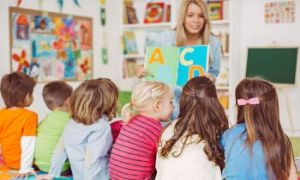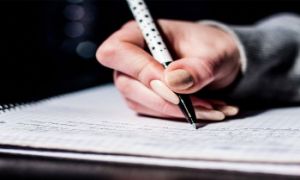The following free workbooks are designed to allow the best opportunities to learn the Wiradjuri language and culture through games and other learning activities. Wiradjuri is one of many Aboriginal languages on the East Coast of Australia.
Resources included:
Learn Wiradjuri: Volume 1 Ngumbaay
Volume 2 Bula - Family Terms, Body Parts and Colours
- Wiradjuri – Sounds & Words
- Wiradjuri – Family Terms
- Kinship
- Wiradjuri – Body Parts
- Wiradjuri – Colours
- Wiradjuri – Symbols & Tracks
- Appendix - Wiradjuri – Sounds at a Glance
The activities set out in this resource:
- Connect children, parents and families together;
- Build understanding of Wiradjuri culture through language, symbols and tracks;
- Teach how to describe family terms, Kinship, body parts and colours in language;
- Include practical and engaging activities, and;
- Feature written translations in Wiradjuri and English.
Even though this resource is written using the Wiradjuri language and symbols, the activities can be used to connect children, parents and families together, whilst learning a little about the Wiradjuri culture, through our language, and symbols and tracks.
The Wiradjuri language used in this book has originally come from the dictionary developed by Uncle Stan Grant (Snr) and Dr John Rudder, without whom our Wiradjuri language would not have been documented for our ongoing teaching and learning.
The Wiradjuri language for these workbooks has also been developed by Diane Riley‑McNaboe in her learnings and teachings.
This workbook series would not have been produced without the sponsorship and support of Indigenous Studies and Aboriginal Education and the Research Centre for Children and Families, within the Sydney School of Education and Social Work, the University of Sydney; and SBS.
Developed as part of the ARC Linkage project Fostering Lifelong Connections for Children in Permanent Care (LP180101332). Additional funding was contributed by the One Sydney, Many People Indigenous Strategy of The University of Sydney.
For more information contact Research Centre for Children and Families, Sydney School of Education and Social Work at rccf.research@sydney.edu.au
For more information and to download the free workbooks: Learn Wiradjuri Workbook


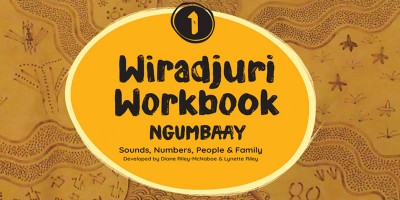
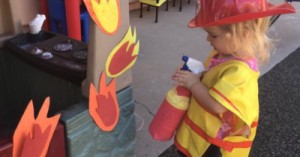
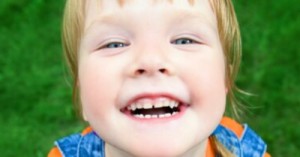
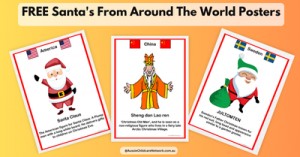
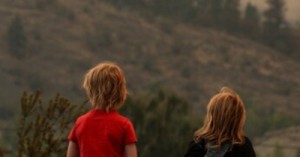
 Open ended questions cannot be responded to with one word answers such as yes or no. These types of questions enables a child to provide
Open ended questions cannot be responded to with one word answers such as yes or no. These types of questions enables a child to provide During your child’s preschool years, an important milestone begins to emerge. This is the development of pre-writing skills. Pre-writing skills are used to encourage, develop
During your child’s preschool years, an important milestone begins to emerge. This is the development of pre-writing skills. Pre-writing skills are used to encourage, develop Open ended materials enables children to play freely. They are objects that have no rules to follow, use or function. Raw materials that can be
Open ended materials enables children to play freely. They are objects that have no rules to follow, use or function. Raw materials that can be An Acknowledgment of the Country is a way of showing respect for the Traditional Owners and can be given by both non-Indigenous people and Aboriginal
An Acknowledgment of the Country is a way of showing respect for the Traditional Owners and can be given by both non-Indigenous people and Aboriginal Language plays an important role in a child’s development. It enables a child to communicate effectively with their family, learn at school, socialize with friends,
Language plays an important role in a child’s development. It enables a child to communicate effectively with their family, learn at school, socialize with friends, Like adults, children have to deal with their own stress in life. Moving house, starting a new school, preparing for a new sibling - these are
Like adults, children have to deal with their own stress in life. Moving house, starting a new school, preparing for a new sibling - these are Playdough is such a versatile material. It provides numerous benefits to children as they manipulate it, it is safe and soothing and provides children with
Playdough is such a versatile material. It provides numerous benefits to children as they manipulate it, it is safe and soothing and provides children with Teaching children about sustainability enables them to appreciate and respect the natural environment. Early childhood services can provide meaningful hand on learning experiences in order
Teaching children about sustainability enables them to appreciate and respect the natural environment. Early childhood services can provide meaningful hand on learning experiences in order Recycling is an important concept that teaches children to care for the environment. It encourages children to be responsible and show a growing appreciating for
Recycling is an important concept that teaches children to care for the environment. It encourages children to be responsible and show a growing appreciating for When children apply paint to paper, glue things together, or pound a lump of clay, they experiment with colour, shape design and texture.
When children apply paint to paper, glue things together, or pound a lump of clay, they experiment with colour, shape design and texture.
